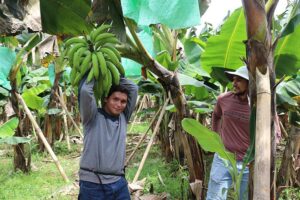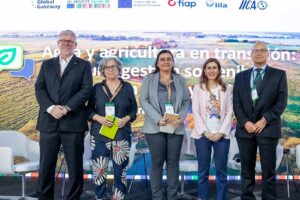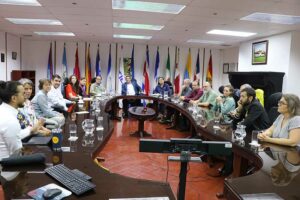Young entrepreneurs from the Trifinio strengthen their knowledge on coffee hybrids for climate resilience
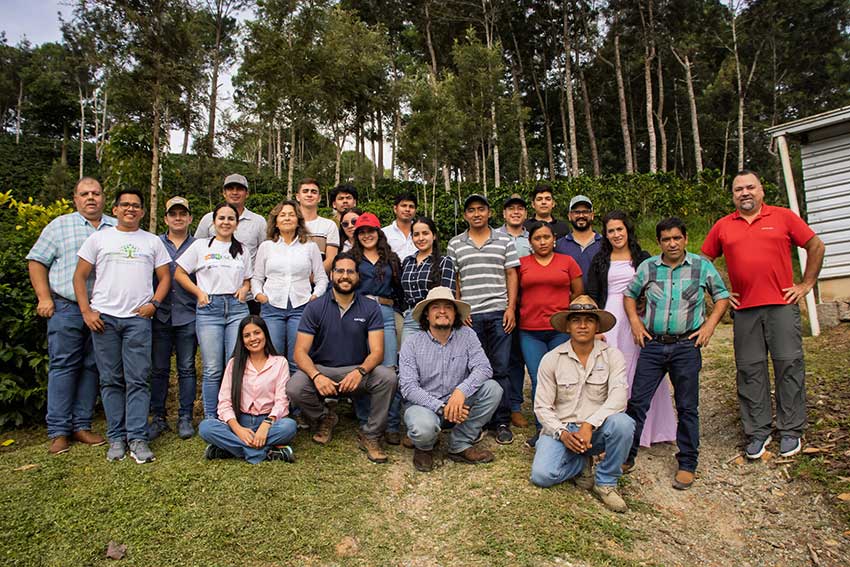
- 21 young people, beneficiaries of the ESCALAR project, build capacities for more sustainable and inclusive coffee farming in Central America.
Within the framework of the ESCALAR project: Scaling climate change adaptation solutions for resilience and reducing migration in the Central American Dry Corridor, implemented by CATIE (Tropical Agricultural Research and Higher Education Center), rural young entrepreneurs from Guatemala, Honduras, and El Salvador participated in a training process on agronomic management, genetic improvement, and vegetative propagation of coffee hybrids.
This process was carried out under Outcome 3 of the ESCALAR project, focused on promoting the participation of young people in the creation and strengthening of sustainable rural enterprises.
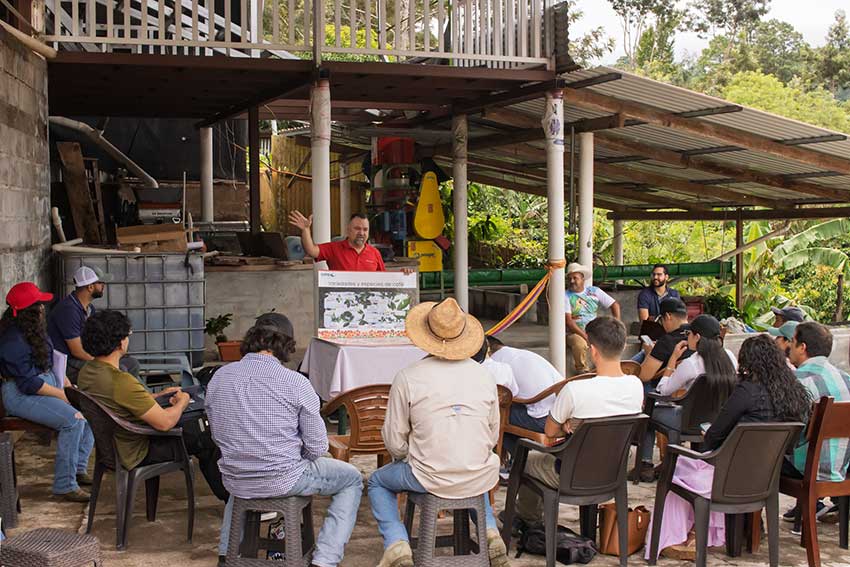
In total, 21 young people (14 men and 7 women), beneficiaries of the project’s incubation component with seed capital, participated actively in six virtual sessions and two in-person sessions held at Finca Loma Linda, Aldea Nueva, Cabañas Copán, in Honduras.
The sessions were facilitated by William Solano and Daniel Fernández, experts from CATIE’s Coffee and Cacao Agroforestry and Genetic Improvement Unit, with the technical support of Ricardo Padrón, Specialist in Entrepreneurship and Innovation at CATIE and the ESCALAR project.
Building capacities for more sustainable coffee farming
During the sessions, the young participants joined spaces that combined theory, practice, and open dialogue to strengthen collective learning on the principles of genetic improvement, coffee grafting, agronomic management of hybrids, and techniques to establish clonal gardens and nurseries in the territories of the Trifinio Region.
“Young entrepreneurs in the territory have shown great interest in learning these advanced concepts and providing a response to their communities for adapting and building resilience in the coffee sector,” expressed Padrón.
“It was especially motivating to see the enthusiasm of the young participants and the active presence of several women, which demonstrates the commitment, generational renewal, and diversity that drive and strengthen the development of the coffee sector in the region. Many thanks to the ESCALAR project for this initiative, which represented a valuable opportunity to strengthen local capacities in a key topic for the sustainability of the crop,” added Solano.
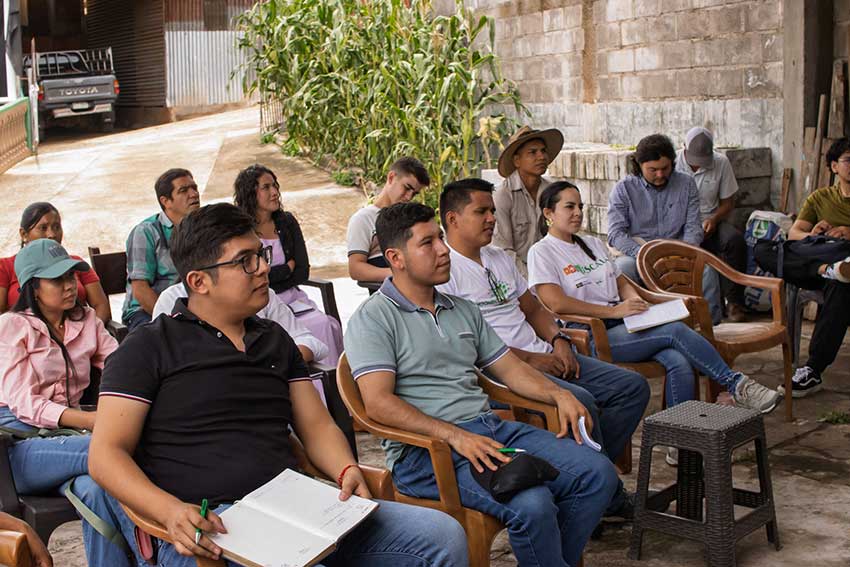
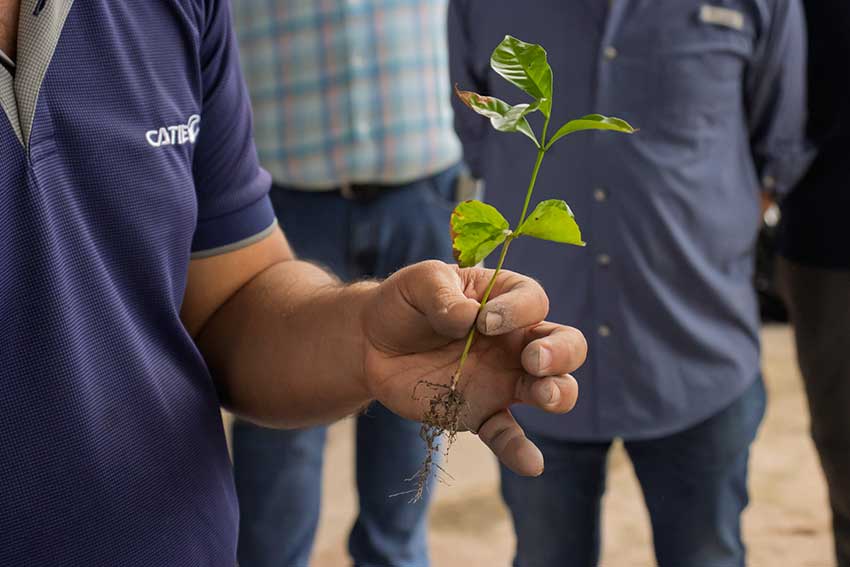
A generation committed to rural innovation
This training process marks a significant step in promoting youth leadership in climate adaptation within the coffee sector, fostering innovation and the economic sustainability of farming families in the Central American Dry Corridor.
“The hybrids workshop in Copán was a unique experience that gave me the skills needed to apply them in my coffee enterprise. Learning about the grafting process will allow me to replicate this practice on my farm. I am now preparing to establish a clonal garden and later my own nursery, Don Medardo,” emphasized Carlos Carranza, a young entrepreneur from El Salvador.
Likewise, sisters Ana and Esly Pinto, young Honduran producers, emphasized the importance the workshop had in their training:
“It was a very enriching experience that allowed us to expand our knowledge and better understand the advantages and potential of hybrids. We were very satisfied with the clarity of the presentations and the exchange of experiences with the other participants. This workshop has been of great value for our work in the coffee sector,” commented the Pinto sisters.
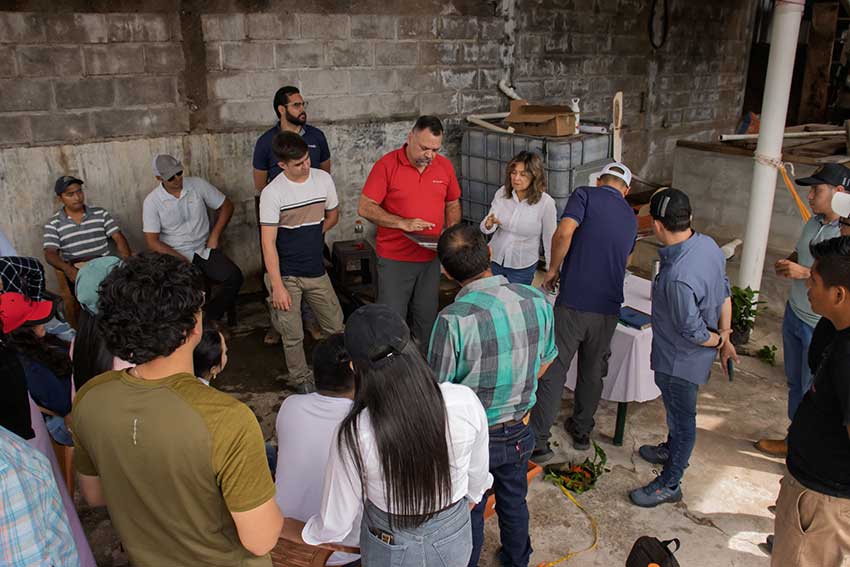
Investing in the youth of the Trifinio
Through these actions, the ESCALAR project, implemented by CATIE with funding from Swedish Cooperation and in partnership with the Trinational Commission of the Trifinio Plan (CTPT), continues to strengthen local capacities and contribute to building territories that are more resilient to climate change.
This training process reaffirms that rural youth not only represent the future of the region, but also the present of a more sustainable and inclusive coffee sector.
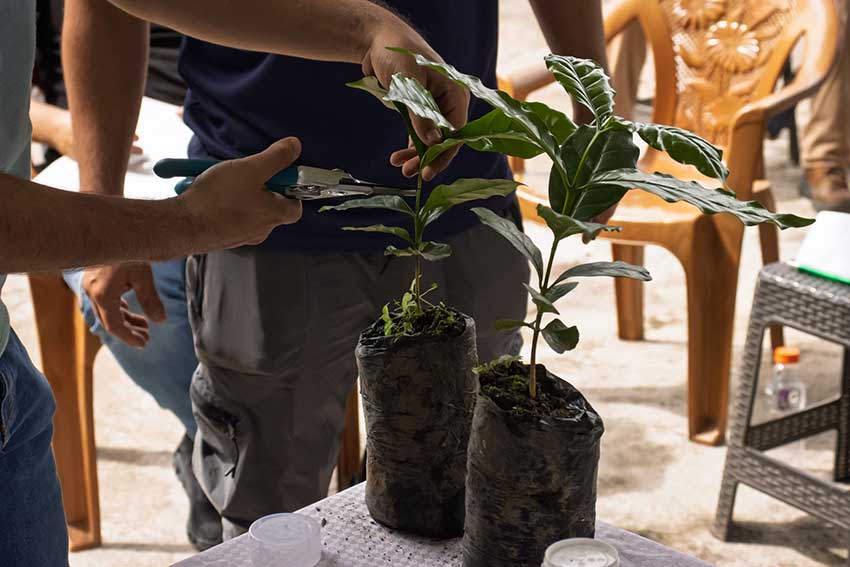
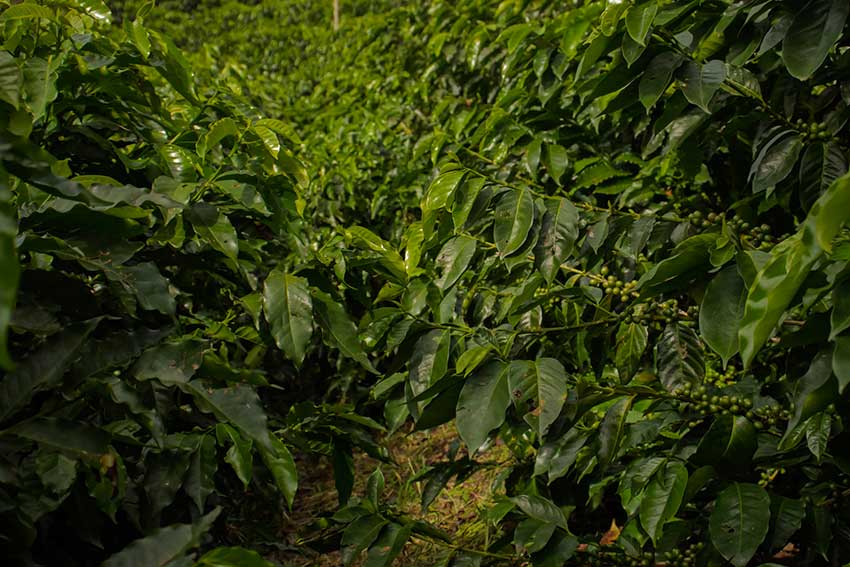
More information:
Ricardo Padrón
Innovation and Entrepreneurship Specialist
Forests and Biodiversity in Productive Landscapes Unit
ESCALAR Project
CATIE
ricardo.padron@catie.ac.cr
Written by:
Arely Valdivia
Strategic Communications Specialist
ESCALAR Project
CATIE
arely.valdivia@catie.ac.cr
Tag:coffee, emprendimientos, ESCALAR, jóvenes, Trfinio

